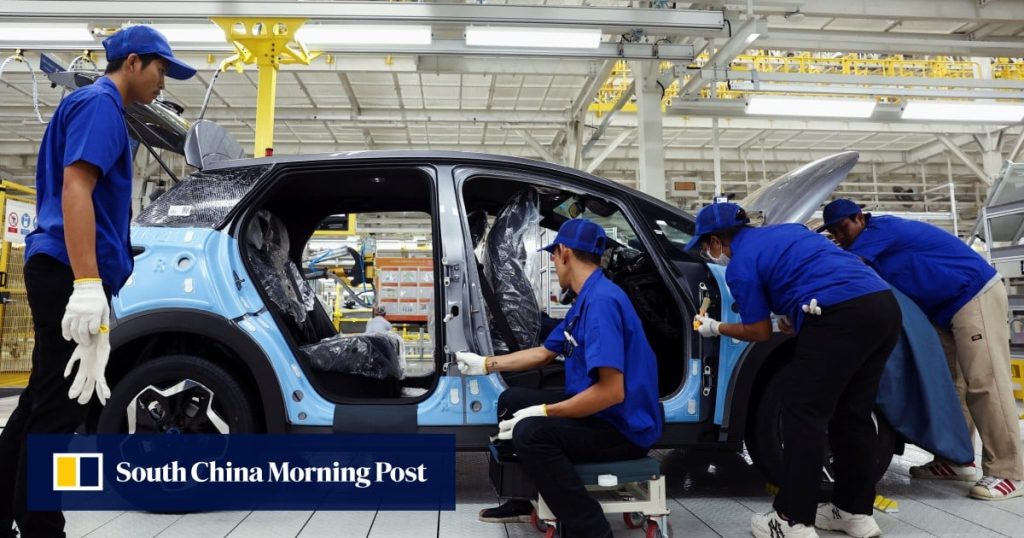The latest quarterly report from Berkshire Hathaway Energy, the subsidiary that directly held Hong Kong-listed shares of the Chinese EV maker, indicated a zero position in BYD, confirming a full exit after a series of stake reductions since 2022.
The divestment came as China’s EV industry grapples with slowing sales and shrinking profits amid oversupply concerns, issues amplified by the US and the European Union.
The EV industry has been the target of China’s anti-involution campaign, which aims to curb harmful competition by cutting excessive capacity. China’s EV sales grew by 27 per cent in August year on year, slowing from 40 per cent growth in the first half.
BYD’s shares dropped 3.2 per cent to HK$109.90 in Hong Kong on Monday, heading for their biggest decline in more than two weeks, paring its gains to 24 per cent this year, compared with the 31 per cent advance of the Hang Seng Index.
Its Shenzhen-listed stock fell 1.7 per cent to 107.22 yuan, trimming the year-to-date gain to 15 per cent.
BYD responded to Buffett’s exit by noting that Berkshire Hathaway’s stake in the company had fallen below 5 per cent as of June last year, a threshold under Hong Kong exchange rules that removes the requirement to disclose changes in holdings.


